The Way South
Even if the path of destiny is not clear, we must find a way to take it.
This has been a hard piece to write. Every time I sat down with it, I found myself in another loop, going deeper and deeper into the vault of my inner resistance.
I’ve been writing a lot lately, but I’ve published nothing. Zero. Not a comfortable spot if you write for a living. At first, you want to publish anything to fix the situation. Then, like a rabbit staring at a snake, you stop moving. The silence grows. Nothing feels good enough to break it.
The days become circular. New morning, same you. You’d rather jump out of your own skin than revisit the ruins of your work. You stare at the page and slowly realize there’s something else going on. It’s not about two thousand words of truth, it’s a big loop coming to a close, a chapter ending. You have no idea what’s next. No wonder why you haven’t finished a goddamn thing.
Dante imagined hell as a sequence of circles, one for each kind of sin. I read his Divine Comedy in small bites, my eyes glazing over the medieval trivia. But maybe because it requires effort, the book’s metaphors stick. I don’t need to believe in medieval metaphysics to agree that hell is being stuck in the same loop forever, meeting yourself and your failings over and over again. Hell is thinking you want to change but avoiding the uncomfortable truths of your condition, the ones keeping you chained. In that sense, being in hell is a choice.
I’ve not been sleeping well either. Late at night, when my mind refuses to shut off and my place feels stuffy, I step onto the roof. Beer in hand I feel the breeze and listen to the city’s steady hum. Looking down on 14th Street’s pizza-munching drunks, I wonder why I’m here. I cling to this place as if letting go meant drifting away into infinite nothingness. Yet it no longer feels like I belong.
Joseph Campbell warned that those who refuse their call to adventure live in a “wasteland of dry stones.” Their houses become labyrinths where they hide from the Minotaur behind “cyclopean walls” of “boredom, hard work, or ‘culture.’” I could feel those cyclopean walls all around me. Right in front of me, blocking my sight. Behind my forehead, crushing my thoughts. But I could hear no call.
The Divine Comedy starts with Dante being stuck, lost in the woods of midlife. The poet Virgil is sent to be his guide and together they venture into the underworld. I was hoping for something like that — a guide, a vision, a sign. That’s how all of this started, with my longing for the vivid clarity of Paul Atreides in this year’s Dune 2:
The visions are clear now. I see possible futures, all at once. Our enemies are all around us, and in so many futures they prevail. But I do see a way, there is a narrow way through.
All possible futures at once? Where could I sign up? It sounded like he was talking about my favorite waitbutwhy image.
“We think a lot about those black lines,” Tim Urban wrote about his creation, “forgetting that it’s all still in our hands.” True, but you only get to live one. To me, those infinite paths felt like a burden, an impossible paradox of choice. If Campbell was right, most were cobwebbed hallways of avoiding life’s calling.
There’s a twist to Paul’s story. In the south of Arrakis, the fundamentalist Fremen tribes wait for their Messiah. Paul refuses to go. His dreams are filled with death and destruction, a galaxy laid to waste. “All my visions lead to horror,” he says and treats the prophecy as a dangerous Bene Gesserit psyop. Paul refuses his call until the Harkonnen launch a devastating attack and leave him no choice.
His resistance reminded me of a piece I wrote earlier this year. I had wondered if fear was the guide to our potential. What if the unconscious excitement of facing one’s destiny manifested as resistance and anxiety? It sounded good on paper but instead of facing my resistance, I fled from fear of failure into frantic activity. I stayed in my circle and tended to the symptoms.
I tried all kinds of remedies for my writing and sleep. Walks and workouts. Meditation, stimulants, and supplements. Journaling, breathwork, prayer, you name it. I worked with a writing coach. Sharp guy, a reader recommended him. After a few sessions, even the coach threw up his hands and asked for more time. There was nothing to be done. I had glanced into the mirror of my soul, now I was avoiding what I had seen.
At the bottom of hell’s pit, Dante and Virgil find a frozen lake with the fallen angel Lucifer stuck at the center. The two poets approach the devil and climb downward on his furry side. Then, suddenly, they climb upward.
When we had reached the point at which the thigh
revolves, just at the swelling of the hip,
my guide, with heavy strain and rugged work,
reversed his head to where his legs had been
and grappled on the hair, as one who climbs —
I thought that we were going back to Hell. — Canto 34
Inversion happens there, at the center “to which all weight is drawn,” furthest from the light.
Inversion happens after Dante visits all circles, after he meets all shadow aspects.
To break a circle, to leave hell, we must face our truths rotting in the dark, the ones that keep us frozen.
In the summer of 2020, I was fresh out of a job and staring at the cyclopean walls of New York during the COVID lockdown. I decided to return to Germany and leave finance behind. But also, I went on a last-minute date. We had wine in the darkness of Bryant Park and celebrated two months like they were our last on earth. I fell in love right before I left, only I couldn’t admit that to myself or her.
A few weeks later, I explored a little forest on the edge of my hometown. I was on the phone with her and, inspired by the trees, explained that I wanted to keep traveling. Somehow that felt important, to walk more and get a sense of the world and who I was. At that moment, I could feel something shift. I wasn’t coming back — time for her to cut the strings connecting our hearts.
But I did return. And I never walked until I found myself. I had to go for another loop first.
I walked a lot that fall. I cleared my head one hike at a time. One day, I sat on a lonely bench, just me and one thought. Writing. There seemed to be a path forward in that. That winter, it dawned on me that I missed New York, my friends, and, well, her. So, I returned.
Four years later, during a dark night of the soul, I thought I’d left that loop behind. Pustekuchen. I was still desperately clinging to a patchwork of labels that, stitched together, made the straightjacket of my identity.
For example, I quickly replaced “investor” with “writer.” Who would I be if I wasn’t writing? I don’t know. When I was in doubt, I tried to write more. At least it affirmed my sense of self.
Who would I be if I wasn’t a New Yorker? I don’t know. But I let this city dictate how much I needed to earn. I created the conditions that made it difficult to experiment, then complained about being stuck. Silly me.
Finance was a world I knew quite well. Who would I be if I explored other stories? I don’t know. Out of my depth, for starters.
The more desperately I held on to what I knew, the more I walked in old familiar loops of perfectionism and isolation. I closed the door and chose books over connection. I felt more comfortable being a student. There’s no risk in that. The teacher is the one who has to expose themselves and conversation, not reading, demands vulnerability.
“What can be immobilizingly difficult,” Gabor Maté wrote about ADHD in Scattered Minds, “is to arouse the brain’s motivational apparatus in the absence of personal interest.” My work was born in a wave of curiosity about the outsiders who made a fortune in markets. Unfortunately, curiosity does not come with an instruction manual. And I could feel that I had ventured too far from its essence. I was starting to hide what made me feel alive because it didn’t fit the paradigm of identity. I found myself at the intersection of money, creativity, spirituality, and inner work and I am still not quite sure what the mission is. I have some ideas but no certainty.
“We start by being made by others,” Sartre once said, “and then we remake ourselves.” He felt we are “condemned to” this freedom, that it was “not a cheerful thing.” Life can feel that way, as if freedom was a burden. You walk the wasteland, trying to figure it out one day at a time, only to wake up and realize you’re not getting anywhere.
But if the future is a big pile of “I don’t know,” that is the good kind of discomfort, the one to walk toward. That uncertainty is filled with potential if we face what holds us and allow ourselves to let go.
Campbell’s call to adventure, Paul’s journey south, Dante’s circles, it’s all the same idea. It has nothing to do with vision or clarity — I had been distracted by Denis Villeneuve’s cinematic genius. It is an inner sense of direction pointing to the place that demands our attention yet creates resistance. These are metaphors for the path leading lower, then higher.
I believe we all have such a place, a ‘south’. It is the whispered thought, the dream we can’t bury, yet don’t dare to face. It lives in the emotional echo of stories, songs, and images that refuse to fade. It is the seemingly inhospitable destination that haunts our imagination. Where others see a barren deathtrap, we sense the water of life. There, the old is sacrificed and we are remade.
“Tell me, my dear Baron, have you investigated the southern polar regions of Arrakis?”
The Baron stared up at the Emperor, shocked by the change of subject. “But … well, you know, Your Majesty, the entire region is uninhabitable, open to wind and worm. There's not even any spice in those latitudes. … It's a place where men cannot survive for long.” — Dune, Frank Herbert
“We have two lives; the second begins when we realise we only have one.” — Confucius
I believe Campbell was right about the consequences of refusing the call. However, I don’t think the call is a singular event. To worry about the paths not taken is to build a mental maze of regret and perish in it.
If you ask me, the second life begins when we face our south, when we allow the idea that there is a meaningful path we can walk right now.
Success is not about the destination but the beginning. If walking seemed impossible yesterday, taking the first step is a victory already. Failure is not to get lost in the desert, but to meet ourselves when the circle of life closes and to realize we’re still stuck in the frozen lake.
Our second life begins when we stop waiting for clarity, put faith in our hearts to guide us, feel the sun on our faces, and walk.
“The ancients lived their symbols. Thus they went into the solitude of the desert to teach us that the place of the soul is a lonely desert. There they found the abundance of visions, the fruits of the desert, the wondrous flowers of the soul.” — The Red Book, Carl Jung




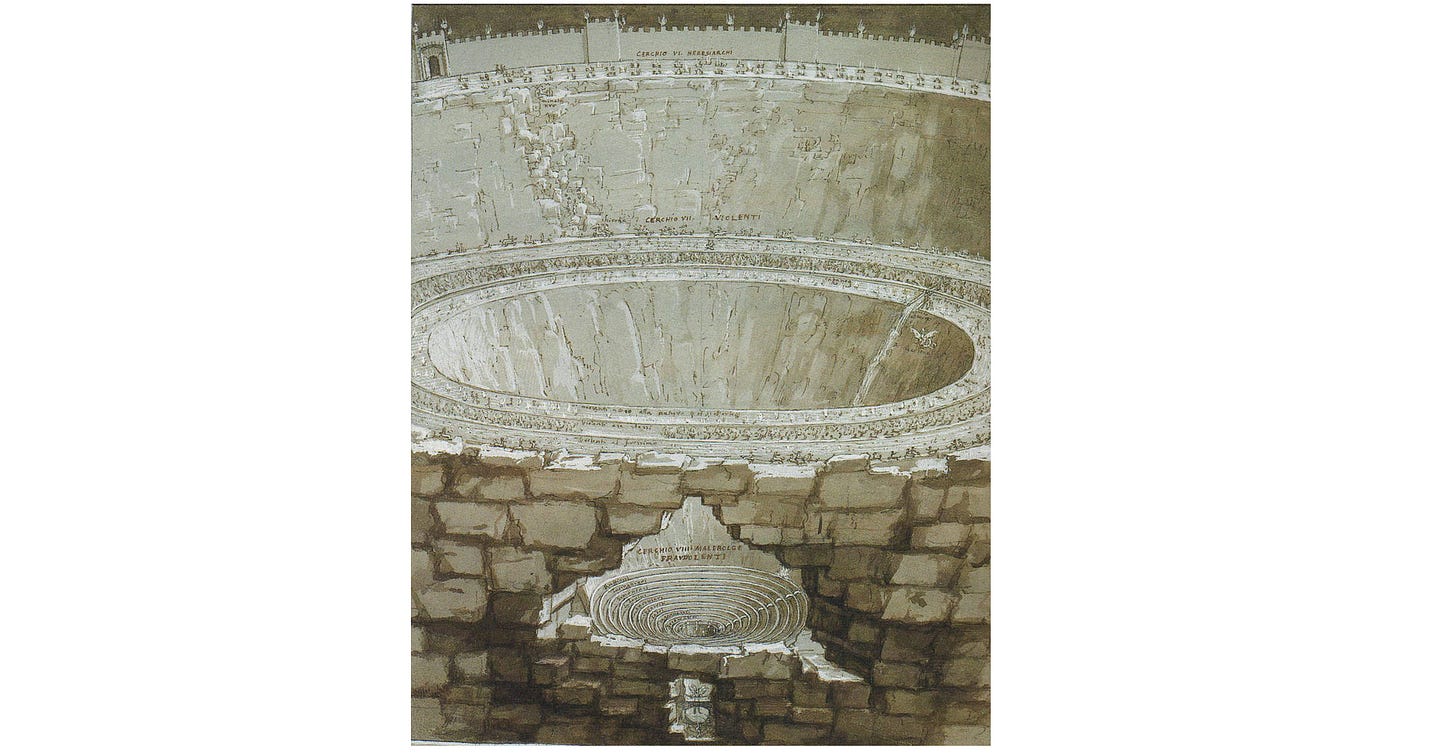
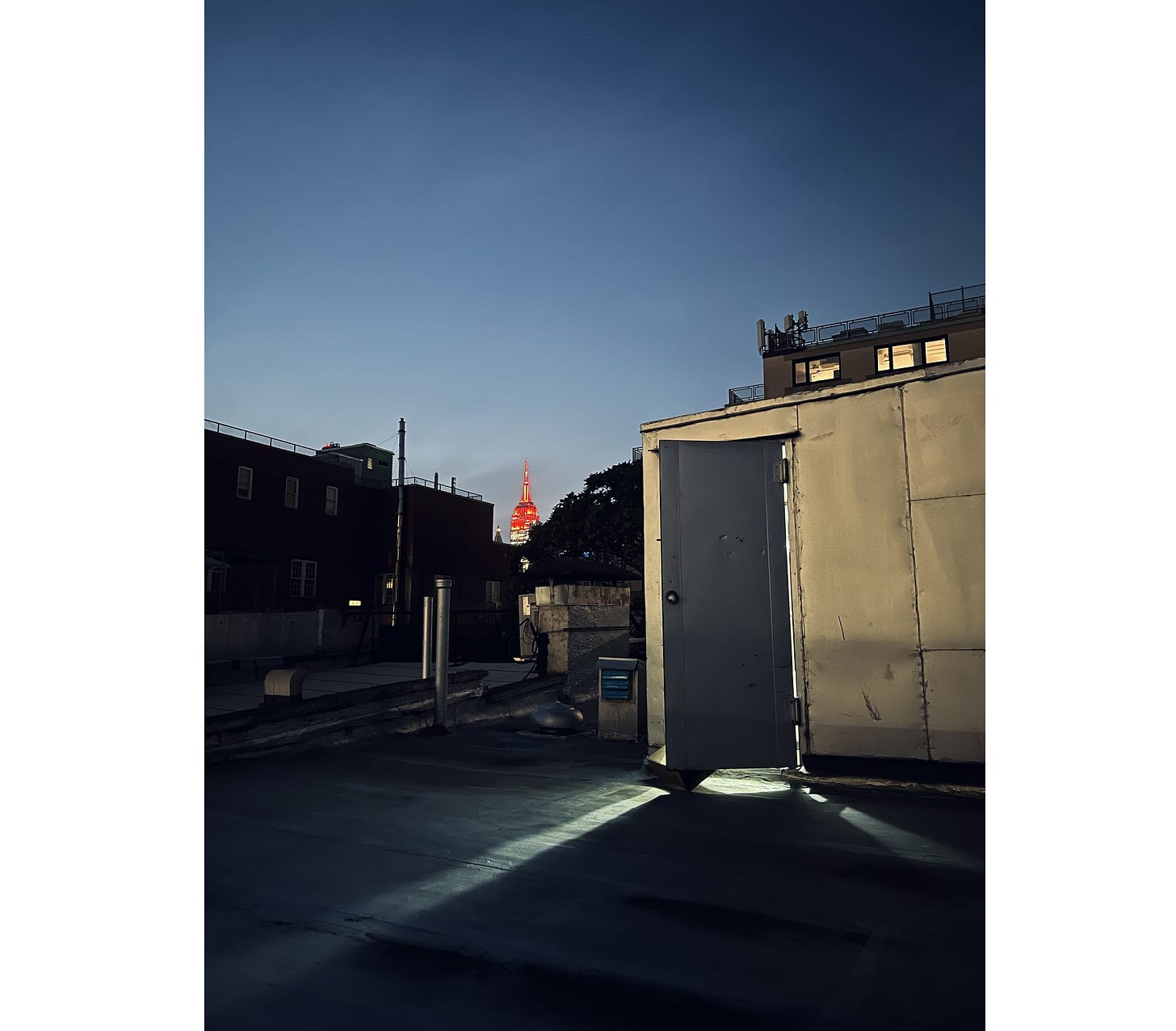
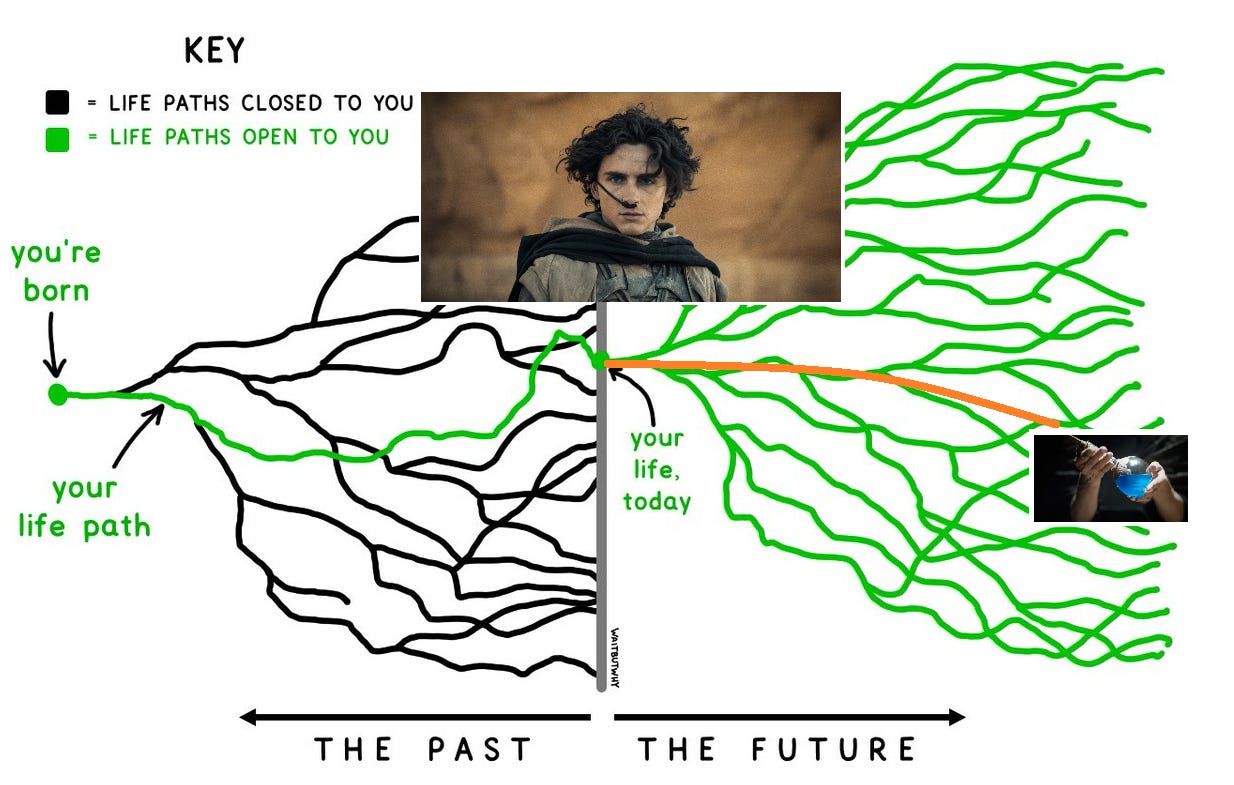

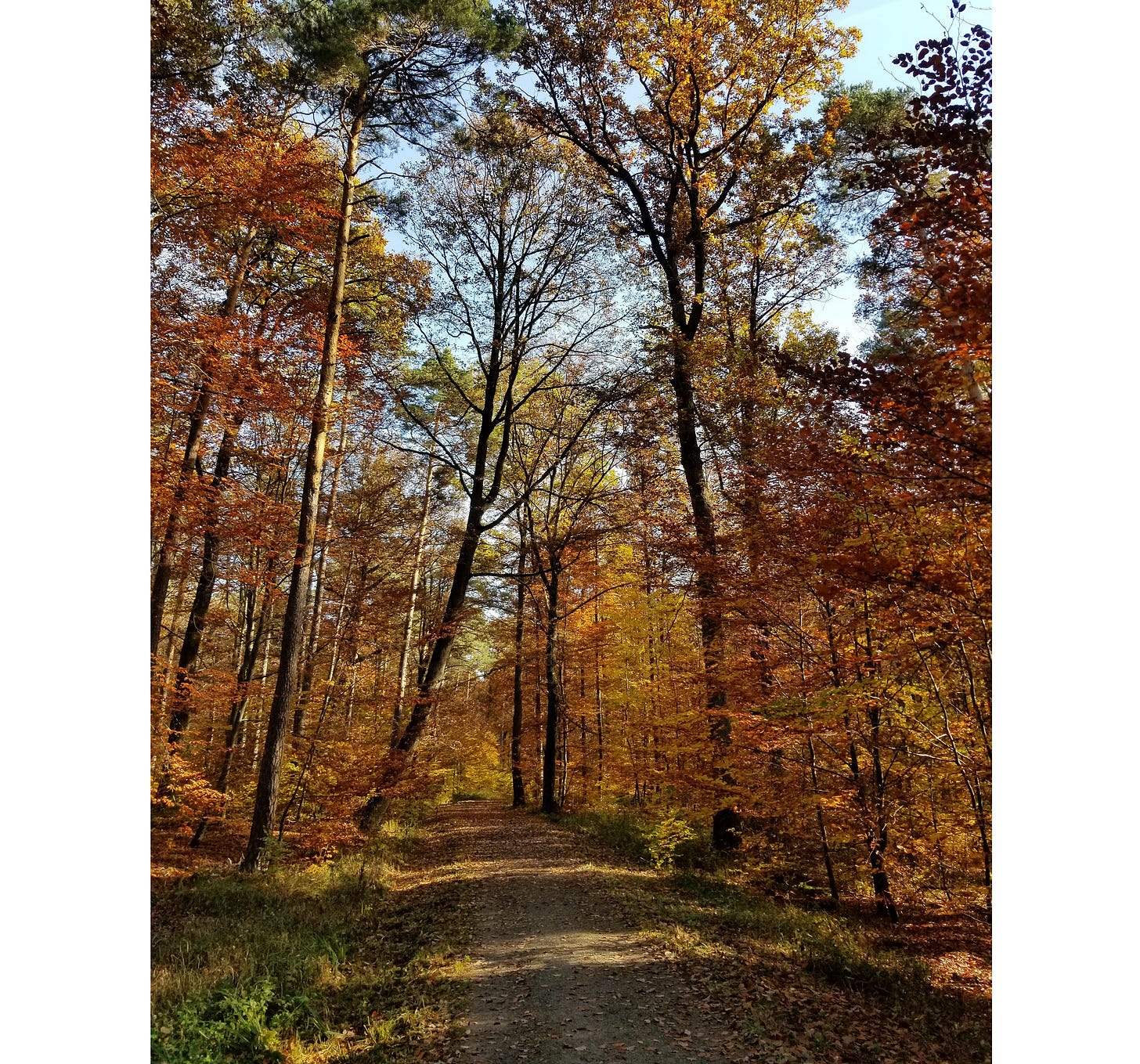
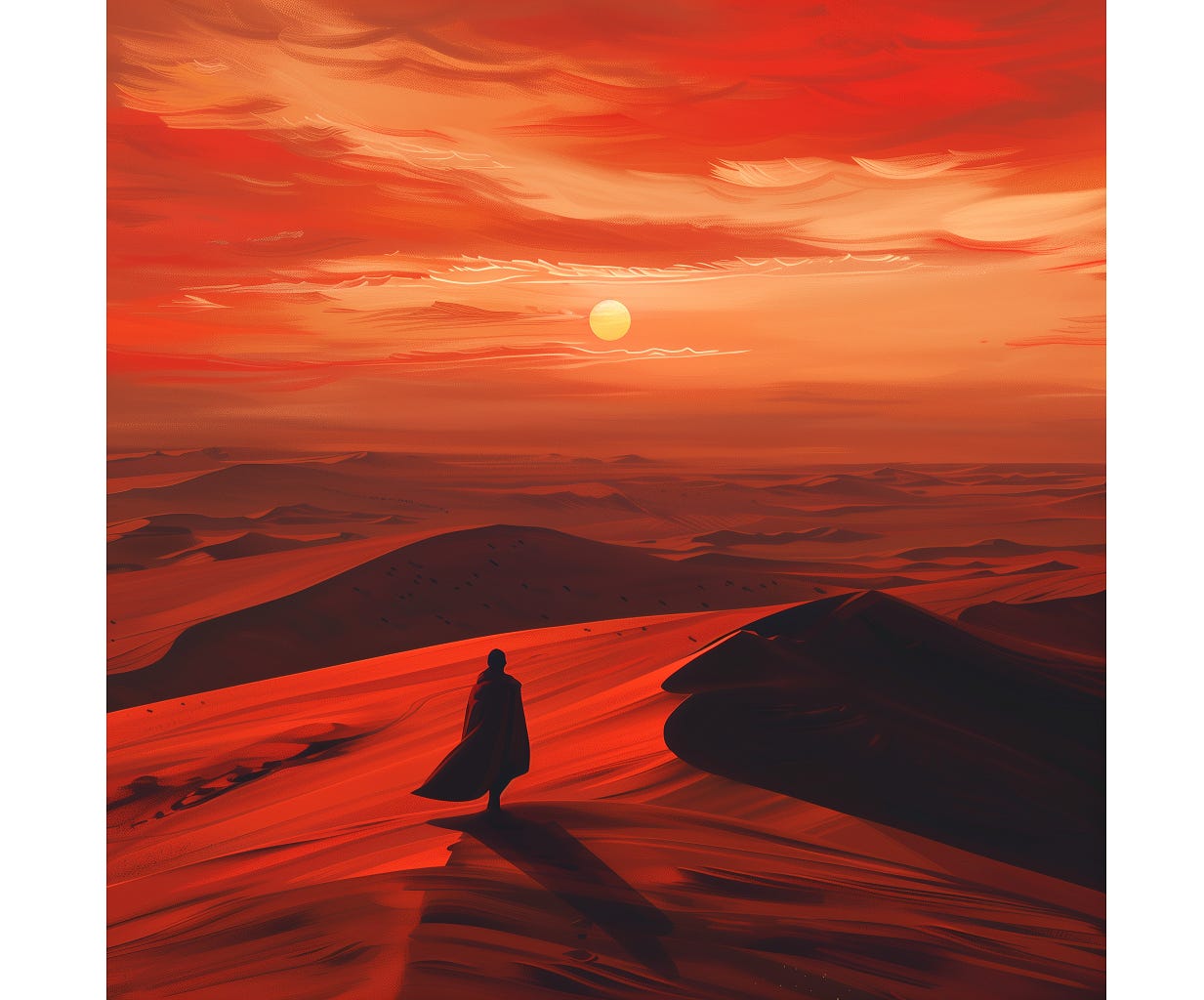
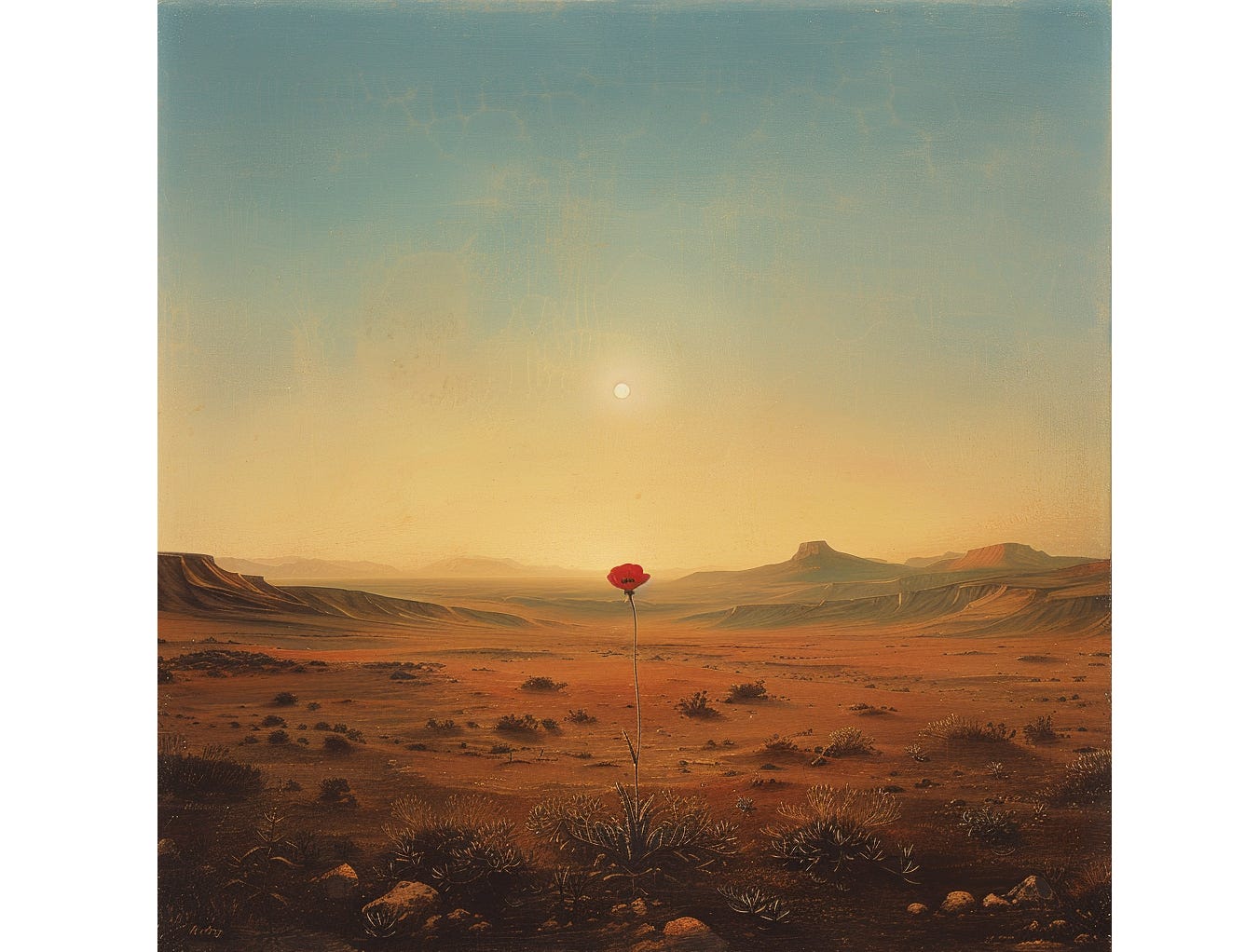
I missed your writing. I almost don’t care what you write about - but the timing is funny, this one particularly resonates. Thank you. You showed me where North is on the compass again.
Authenticity. Depth. Relevance. Thank you for sharing.